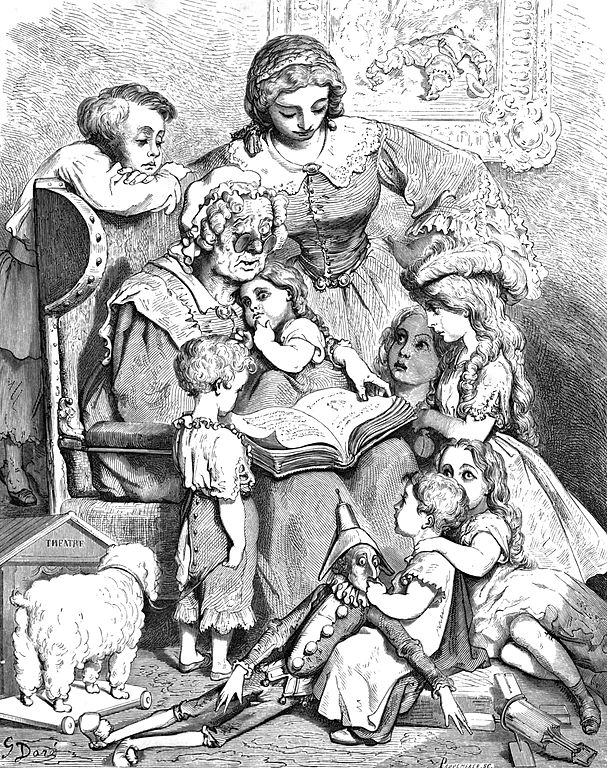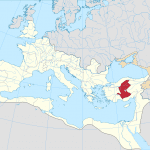Reply to Common Atheist Critiques Concerning the Christian Epistemology of Belief in the Bible and God

Atheists often chide Christians for placing faith in the Bible: that it is God’s inspired and infallible revelation. They argue that we can’t possibly know or prove that. But all of us (including atheists) extrapolate the truthfulness (at least in general terms) of a work based on things in it which we can easily verify or substantiate. Then we trust the writer for the rest. And, of course, for the Christian, we exercise faith, which is not unlike the sort of trust just mentioned. It is not a blind faith, but one which extrapolates from, and is wholly consistent with, the evidences of reason.
The Christian does this with the Bible, on many levels. We trust Jesus, because He showed Himself trustworthy and claimed to be God (and we believe Him, because of His demonstrated character and the miracles He performed, which eyewitnesses saw). He accepts Old Testament Scripture, so we do also. We see fulfilled prophecies and practical wisdom, and archaeological and historiographical support for the Bible’s accuracy.
We see sublime moral teaching, and the absence of silly myths, as were present, for example, in Greek mythology, despite the rational thought of the Greek philosophers a little later. Hebrew literature is notably lacking fantastic or fairy-tale elements. We see internal coherence of teaching. These are a few of the many reasons we would offer.
People differ on how to establish factuality. If one takes a strictly empiricist view, then only things that can be verified by the senses, and replicable experiment or observation are accepted. But then one has to explain and justify the axiom that is involved in empiricism (which is quite difficult to do, if intended to exclude other sorts of knowledge and epistemology).
As for extrapolation from many instances where a particular document has been shown to be true and accurate; we do that with every scholar whom we trust. We don’t try to verify everything he says. What we do is see if he has a proven track record, and the more we see that he does, without errors, we trust him more so in the future. Likewise, Christians have a host of cumulative, complementary reasons for their acceptance of the Bible.
Granted, nothing else (except alternate holy books) claims to be inspired and infallible, but in many ways, the Christian has no different of a method or epistemology for what he believes, than anyone else does with any other kind of literature. We happen to believe that the Bible is revelation, and verified by miraculous occurrences. So, of course, one must allow those two things as categories and possibilities. Christians contend that many verifications, taken together, are not inconsistent with a justified belief that the Bible is a revelation from God. I hasten to add that this is not a proof (because one still must exercise faith); but it is a plausible, consistent, and not irrational viewpoint.
It would be a gigantic, probably impossible task to “verify” (prove?) every statement in a book, let alone a complex one like the Bible. Yet we all have many books which we believe contain substantially true information. I think the phone book is an example of that. Do I have to call everyone in it to prove that the number matches the person before I will “believe” the phone book? Or take the voting ballot. Do I have to personally contact every candidate to “prove” they are running, and that their name on the ballot isn’t just made up?
One can see how silly it gets . . . Yet the atheist often demands absolute proof for the Bible’s claims before granting that the Christian has any basis for placing faith in it, that it is God’s inspired word. How an atheist regards any other work as true or false involves largely the same processes, with faith (or, trust, extrapolation, inductive leaps) added onto them.
Let me illustrate by an example. On what basis would an atheist be skeptical of statements in Bertrand Russell’s autobiography? When he talks about some opinion he had in 1925, I venture to guess that an atheist would simply assume his report. They would not doubt it, nor would they have many ways in which they could reasonably doubt it, even if they wanted to, because that is an eyewitness report (first-hand!). Of course, the miracles in the Bible were seen by eyewitnesses as well.
I am saying that how we approach matters of truth and falsity is very complex, and involves issues of proof, verifiability, axiom, induction and deduction, experience, and plausibility which are some of the deepest, most difficult areas of philosophy. And I am strongly denying that the Christian approach to the Bible (at least for halfway intelligent, educated Christians) is one of irrationality, gullibility, and blind faith, as is the atheist stereotype, as if it has no reasonable basis whatsoever.
I think prejudices, predispositions, and biases are much more prevalent than any of us would like to admit. This was evident in one of my brief Internet encounters with an atheist, who described the Bible as “patently absurd,” and lamented the fact that “it was written by brutal savages thousands of years ago.” But what does the time of writing have to do with anything?
Who determines what is “brutal”? I think (for some odd, strange reason which is difficult to comprehend) that stabbing a full-term human baby in the back of the neck with scissors, after pulling her halfway out of her mother, and sucking her brains out, is “brutally savage.” Yet that is the law of our land (it’s called “partial-birth abortion”), and great numbers of Senators and Supreme Court Justices alike defend it.
Yet we (at least the more advanced and civilized among us, such as this particular atheist) look down our noses at “ancient savages” because they claimed to have the sanction of God when they “dashed children against the rocks”? At least they claimed some higher purpose beyond themselves. Today, “inconvenience” and the nebulous, all-encompassing “choice” is enough to rationalize brutal savagery against helpless infants, unfortunate enough to have been conceived by irresponsible, immature, selfish parents who would rather kill than nurture and love their own children; their own flesh and blood.
No century was anywhere near as savage as the 20th, and the violence was overwhelmingly dominated by non-Christians: either proclaimed institutional atheists (Communists) or violently anti-Semitic, anti-Christian, anti-Aryan racist pagans (Nazis). So I find this a curiously incoherent and inconsistent point of view, if I do say so.
Then he said that the Bible was “completely irrelevant by today’s standards.” But who determines what is “relevant” or not, and how? What does it mean to be “relevant”? What are “today’s standards”? Who determines those, and why should I be bound to their opinions?
He contended that the Bible was “horrifically brutal.” But again, what is brutality? Again, I need merely appeal to abortion, if we want to talk brutality. I see that as self-evidently brutal. If someone does not, I would love to hear the reasons why. So, then, why does this atheist (and many others of like mind) assume that we are, in our age, obviously more civilized and less “brutal and savage” than those in ages past?
The atheist then decried the “immoral vision of ‘God'” found in the Bible. Does he have this opinion because we believe that God has power over life and death, as Judge, being the Creator of life in the first place? That is “immoral”? On what basis is morality established? God is supposedly a “violent dictator.” It’s not okay for God (Who is believed to be omnipotent by nature and to reign over all of His creation) to ever “dictate” or be “violent,” yet it is fine and dandy for human beings to do so for purely sexual and selfish reasons. Very interesting concept there . . . .
This atheist described the Bible as “fairy tales written by a handful of savages a few thousand years ago.” The short reply to this is as follows:
1) The Bible is not “fairy tales,” but history, with plenty of archaeological and historiographical substantiation.
2) The ancient Jews were not “savages,” but a highly advanced society and culture.
3) I don’t see what relevance the age of the material has to anything. Aristotle and Plato (or some Greek atheist philosophers of your choice) lived over two thousand years ago too. I don’t see atheists caring about that, as long as they agree with the philosopher.
He then asked, “How does some meta view of “Universe is God”, get twisted into the OT God or that Christ guy?” That discussion would take months. It is important to narrow the subject down to something manageable. But it does little good to mull over biblical details with atheists. I would rather stick to philosophical categories.
He suspected that the orthodox view of Jesus was based upon “very selective reading and re-interpreting the text to fit your own preconceptions.” But I reply that Jesus’ claims are self-explanatory and quite clear. One either accepts them or not (the alternatives being belief that He is a madman or liar, it seems to me). But that is why Christians believe the “Christ guy.” We take Him at His word. And we believe that the Bible is a revelation from the God Who created the Universe and Man (whether by special creation or evolution).
But if an atheist disallows miracles and revelations from the outset, then that entity hardly could make any sense to them. All these things have to be approached from the level of presupposition and axiom, in Christian-atheist discussions. And it takes a long time to achieve any appreciable degree of mutual understanding and respect.
Many atheists think that belief in Santa Claus and God are on the same intellectual level: infantile projections of idealized figures, intended to fill a need, or as a psychological crutch, and both equally fanciful and nonexistent. Their reasoning (boiled down to its basics) runs: “many people (children) believe in Santa Claus, and many believe in God. As the former is not a truth, so may the latter be an untruth as well.” One atheist I interacted with even argued that Santa Claus was a “lie” and that parents should not teach his existence as if it was truth. He then compared the epistemology of his childhood belief in God with his earlier belief in Santa Claus.
This is ridiculous. Santa Claus and the Easter Bunny are not “lies,” they are fairy tales and cultivators of the imagination and wonder of childhood. Fictional books serve the same function, even for adults. Is every work of fiction a lie? Myths serve to promulgate important truths about life. Once we get older, we find out they are not literally true, yet the wonder of childhood is retained in them, as we teach our own children.
Santa Claus, the Easter Bunny, and the tooth fairy might be thought of as personifications for certain ideals of good and good behavior: graciousness and reward for good behavior. They bring the concepts alive to children whose minds are not developed enough to grasp abstract subjects, apart from concrete realities. A child trusts its parents. When I toss my 11 month old daughter up into the air, she trusts that I will catch her, not that I will let her fall and be harmed. All parents “propagandize” young children. There is no other way to teach them. One has to take some position.
When a child knows next to nothing about a religion, and reduces it to the level of a child’s myth and fairy-tale, then grows up and rejects Christianity in college (since he barely knew it, let alone how to defend it in the first place), then this is the sort of “argument” we get. This is supposed to be compelling for any thinker to ponder the intellectual justifications of atheism and the disproofs of Christianity? Santa Claus? The Easter Bunny? The tooth fairy? We might as well add Frankenstein, Superman, Spiderman, Batman, and Bigfoot to the list of “Christianity-killers.” There are a ton more reasons to believe in God than Santa Claus, which is why all the great theistic philosophers defended God, not a jolly old man in a red suit with flying reindeer.
Any thinker or thoughtful person should wonder and think about the most important questions of life. We all need hope, no doubt, and Santa Claus plays that role in a child’s mind. Those factors in and of themselves do not prove atheism or disprove Christianity. I think that they rather suggest that there may be a God, because so many of us yearn for him. We don’t say that water doesn’t exist because everyone thirsts for it, or that sex doesn’t exist because most of us have a sexual drive, or that love and acceptance are nonexistent because we all yearn for that. Yet somehow atheists conclude that it is likely that God doesn’t exist because so many believe He does, and have a need for Him. Odd.
The typical odyssey of atheists who were raised Christian is a loss of faith in college, as soon as childhood presuppositions and tenets of faith are challenged, and the hapless person has no knowledge or rational basis to fall back on in order to defend his beliefs (not having been taught any) . I blame the churches for not stressing apologetics and the rational basis for Christianity. It is a failure of education. And this is one reason I am so committed to apologetics. Knowing why we believe (apologetics), as well as what we believe (catechesis or creeds), is crucial to a robust, confident, life-transforming faith.
If a young man or woman in college knew very little about Christianity and how it could be defended, I’m not surprised in the least that they are likely to “reject” it (actually a straw man version, or caricature of it). Catholic apologist G. K. Chesterton wrote (paraphrase):
When people stop believing in Christianity, the problem isn’t that they believe in nothing, but that they will believe in anything.
And:
Christianity has not been tried and found wanting. It has been found difficult and left untried.
***
(originally 11-13-02)
Photo credit: Mother Goose reading written fairy tales (1866), by Gustave Doré (1832-1883) [public domain / Wikimedia Commons]
***













